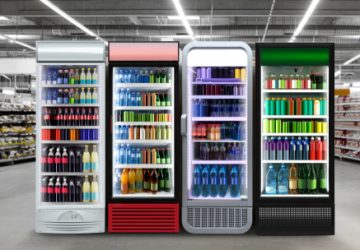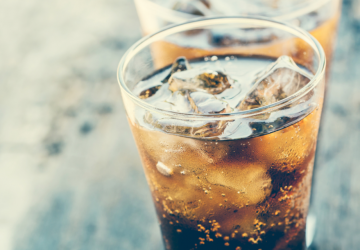Unless you’ve been unable to read a newspaper for the last few years, you already know that there’s a coordinated war being fought by nutritional busybodies in the United States against soda pop. The usual cabal of self-anointed “public interest” advocates, government bureaucrats, and other obesity warriors are fighting an all-out assault against anything sweet and fizzy, usually with the flimsiest scientific justifications imaginable.
And the news media isn’t injecting much sanity into the debate, relying on questionable science for the filling in their journalistic puff-pastry. Last week, for instance, the Washington Post heaped lengthy praise on one school district planning to permanently exile soda vending machines.
Its rationale? “For every soda a child drinks,” says the Post, a Harvard study “found the probability of obesity increased 50 percent.” Oops! Someone at the Post forgot to actually read the study in question, which concluded that “there is no clear evidence that consumption of sugar per se affects food intake in a unique manner or causes obesity.” Alas, sober findings seldom sell newspapers.
News comes this morning that school board members in Los Angeles are planning to completely ban the sale of soft drinks. But not everyone is behind the effort. One school principal told The Daily News of Los Angeles: “without the sale of soft drinks, we cannot support our athletic programs.” Another administrator feared that “if we kill high school athletics because we can’t support them financially, you are going to have a bigger problem.” The assistant principal of Los Angeles High School conceded to The Los Angeles Times: “Honestly, some of those programs will be hurt very badly, and I don’t know what alternative we will have.”
The bottom line: like all foods, soda pop is not inherently bad for children or adults. Consumed in moderation, it can be part of a perfectly sensible diet. And removing vending-machine profits from schools’ balance sheets will inevitably cause the kind of financial crunches that usually result in cuts in physical education and athletics budgets. That’s not the way to slim our kids down.
The Wall Street Journal offers an additional insight into the lunacy of blaming soft drinks for America’s waist inflation: it seems that during the same period of time our rate of obesity is supposed to have skyrocketed, American consumers purchased more and more diet soda. In fact, during the 12-month period ending on July 14, says the Journal, diet soda sales grew at more than twice the rate of their high-calorie counterparts.




